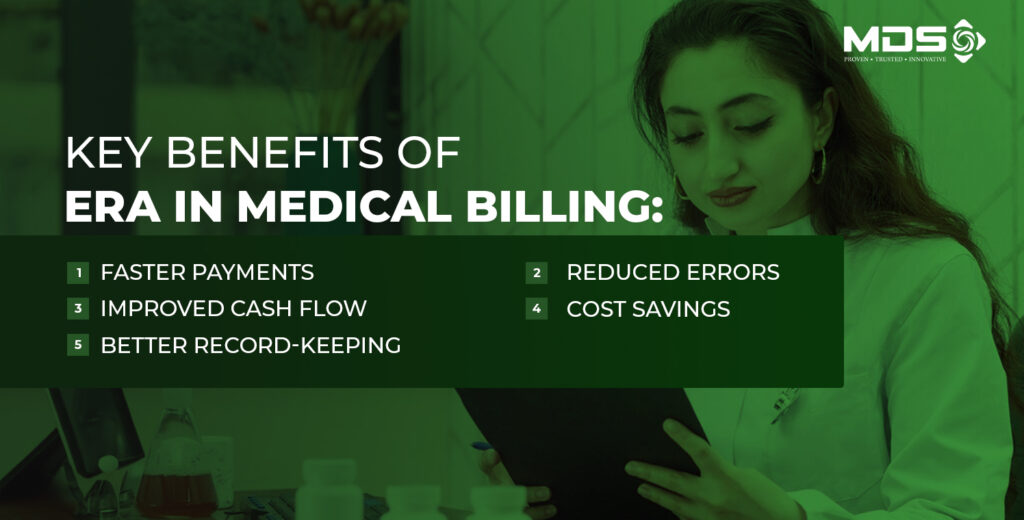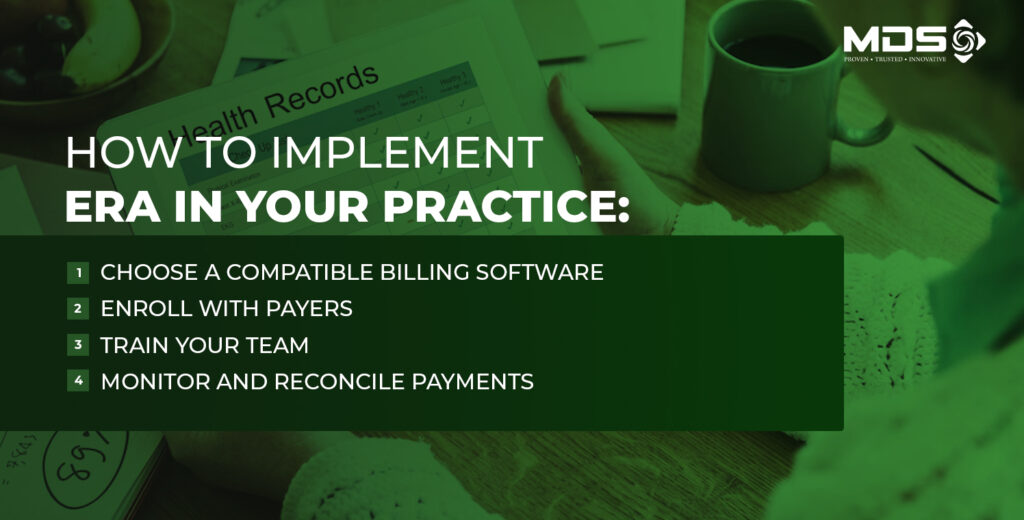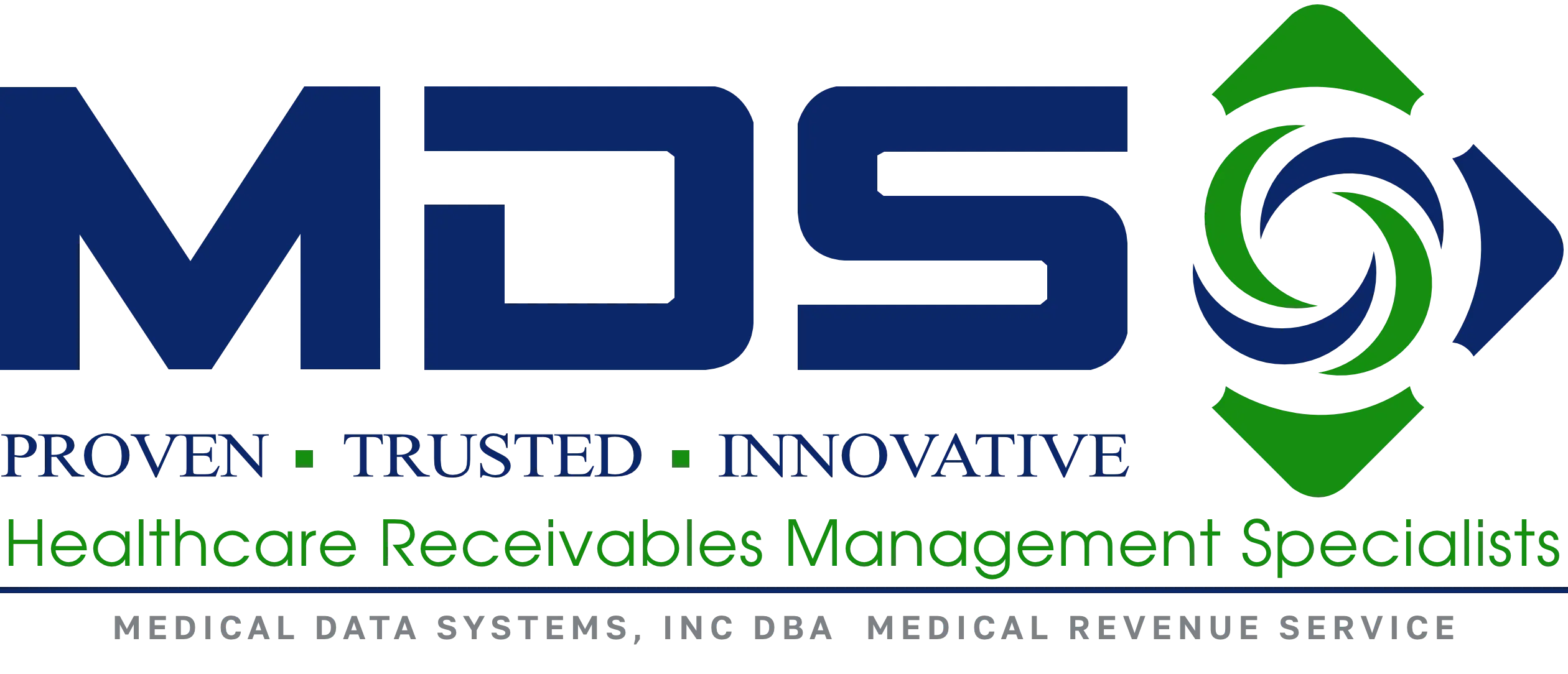If you’re new to medical billing, you’ve likely encountered the term “ERA” and wondered, “What is ERA in medical billing?” It can be a little confusing at first, but once you get the hang of it, ERA makes the entire billing process easier and more efficient. In this article, I’ll walk you through exactly what ERA stands for in medical billing, why it matters, and how it can benefit your practice. Let’s dive into how digital remittance advice can make your workflow smoother and more accurate!
What Is ERA in Medical Billing?
ERA stands for Electronic Remittance Advice in medical billing. It’s a digital version of the paper remittance advice (RA) that healthcare providers typically receive from insurance companies. ERA contains important payment information such as the amount paid, adjustments, and denials, allowing you to quickly update your records. The process replaces the traditional manual entry of payment data with an electronic format, saving time and reducing errors.
ERA simplifies the reconciliation process by providing detailed explanations of payments and denials in a standardized format. It integrates seamlessly with practice management or billing software, enabling providers to automate the posting of payments and adjustments. This automation enhances efficiency, improves accuracy, and ensures timely follow-ups on denied claims, ultimately streamlining revenue cycle management for healthcare organizations. According to the Centers for Medicare & Medicaid Services (CMS), adopting electronic transactions like ERA can save healthcare providers time and reduce administrative costs significantly, contributing to improved overall financial performance.
How Does ERA Work?
In the past, medical providers received remittance advice in paper form. With the rise of digital technologies, insurance companies and payers now send ERA files electronically. These files are transmitted through secure networks and are received by your practice’s billing system. Here’s how the ERA process works in a nutshell:
- Payers send payment information: After processing claims, insurance companies send an ERA with details about the payments.
- Your system receives the ERA: Your billing software or clearinghouse automatically receives and processes the ERA.
- Data is reconciled: The ERA is automatically matched with the patient’s account, ensuring accurate records and reducing manual data entry.
The use of ERA streamlines the billing process and improves efficiency by reducing human error and speeding up the payment cycle.
Key Benefits of ERA in Medical Billing

Adopting ERA in your medical practice can significantly improve your operations. Here are a few benefits that make ERA an invaluable tool for any billing department:
- Faster Payments: With electronic processing, payments are processed and recorded faster.
- Reduced Errors: Automatic data entry minimizes human errors and ensures accuracy.
- Improved Cash Flow: Faster payments and clearer details allow you to manage your cash flow more effectively.
- Cost Savings: Digital processing reduces the cost of printing and mailing paper remittance advice.
- Better Record-Keeping: Storing electronic data reduces clutter and ensures you have a reliable audit trail.
To further streamline your billing process, you can also explore our Swift Medical Billing Solutions, designed to simplify your financial operations with efficient tools and strategies.
ERA vs. Paper Remittance: Why Make the Switch?
It’s no secret that traditional paper remittance advice can be cumbersome and prone to error. Here’s how ERA compares:
| Feature | Paper Remittance Advice | Electronic Remittance Advice (ERA) |
| Processing Time | Longer, manual entry | Quick, automatic integration |
| Error Rate | High due to human input | Low, with less manual involvement |
| Cost | High (printing, mailing) | Low (digital processing) |
| Access to Data | Requires storage and retrieval | Instant access with digital files |
As you can see, ERA is a clear winner in terms of efficiency and accuracy. It reduces administrative burdens and allows healthcare providers to focus on patient care instead of paperwork.If you’re looking to upgrade your practice’s systems further, our Extended Business Solutions can assist you with optimizing operations and improving efficiency across the board.
How to Implement ERA in Your Practice

Implementing ERA in your practice is easier than you might think. Most healthcare providers today use medical billing software that integrates seamlessly with insurance companies’ ERA systems. Here’s how to get started:
- Choose a Compatible Billing Software: Ensure your software can accept and process ERA files.
- Enroll with Payers: Work with insurance companies to ensure you’re set up to receive ERA files.
- Train Your Team: Make sure your billing team understands how to process and manage ERA files.
- Monitor and Reconcile Payments: Keep an eye on ERA files to ensure all payments are accurate and up to date.
By following these steps, you can begin reaping the benefits of ERA in no time. If you’re looking for more support in your practice’s financial management, consider our Primary & Secondary Collections services to further streamline your revenue cycle.
Embracing ERA for Smarter Medical Billing
So, what is ERA in medical billing? It’s a game-changing technology that simplifies the payment and claims process, reduces errors, and enhances cash flow. By implementing ERA in your practice, you can save time, improve accuracy, and optimize your billing operations. Ready to upgrade your medical billing system? Explore how digital remittance can make a difference today.
